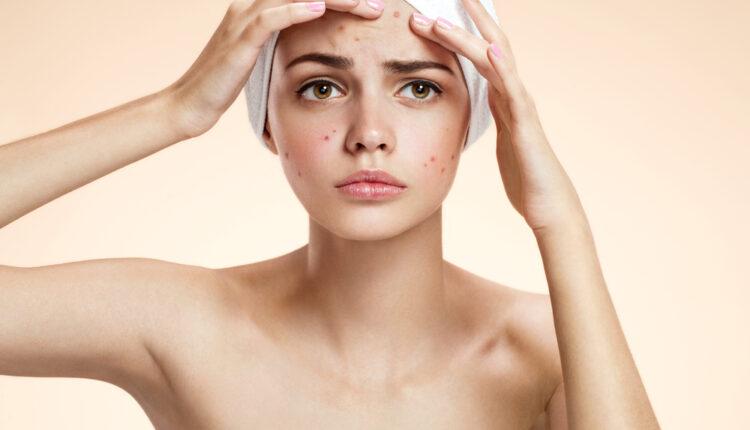Do You Have Blackheads Or Pimples: What’s The Difference?
Pimples and blackheads are irritating and can spread if you don’t take proper care. This article explains how you can differentiate between pimples and blackheads, recognize them, and different ways to prevent them. Make sure to follow a good diet along with a non-toxic skincare routine for better results.
What Is the Difference Between Blackheads Or Pimples?
If you have a history of skin problems or if you have sensitive skin, then you might have experienced both blackheads and pimples. Either way, there’s a lot of difference between both issues, even though they’re the type of acne blemishes.
Inflammation
If you have pimples, you would know they often hurt and cause inflammation. That is because pimples are inflamed blemishes on the skin. They pop out of the skin and are often red and swollen. Sometimes the pimples grow larger and can be seen on the skin from a distance as they spread out. Blackheads, on the other hand, do not cause inflammation. They’re the non-inflamed blemish type, so they don’t normally cause pain or swelling. They’re only visible clearly when they get big enough or if you inspect your skin thoroughly.
Position
Pimples are infectious, and they can occur almost anywhere on the skin. They can even spread if they burst. Pimples may usually occur in areas where there is a high concentration of oil glands. These areas include the face, back, chest, neck, and butt. They can even appear on your shoulders or upper torso. Blackheads occur in hair follicles that have wide openings. They also appear in oily areas of the skin, mostly on the nose and the area around it. Be careful of blackheads appearing on the chin, ears, and around the lips.
How Do They Develop?
The formation of both pimples and blackheads is different. Pimples form when dead skin cells or a plug of oil get trapped in the pores, and it causes trouble for the pores to open. The skin keeps building up oil due to the sebaceous glands, so the oil gets trapped in the pore due to the plug because there’s no passage for it to flow. The skin becomes irritated, and the follicles are engorged, which causes the skin to swell and become red. Bacteria cause swelling, and the white blood cells are in charge of the red color.
Blackheads develop when the oil plug gets trapped in the follicle. Although similar to how pimples form, the plug does not enter deep inside the spore. Instead, it remains on the surface, and the oil accumulates there. Since its color is black, you may think it’s dirt, but in reality, it’s just your skin’s oil trapped inside. The surface plug oxidizes and becomes black due to exposure to air.
How Do You Recognize Them?
It’s easy to differentiate between both acne types. However, there are many types of pimples you may see on your body. The most common pimple is the acne papule, which is a red bump on the skin. The bump is because it is a redhead, and it grows into a white or yellowish pus-filled top and is then called an acne pustule (whitehead), and it is an optional stage. Blackheads, as the name goes, always have black-brown heads on their skin. Some are generally darker than others. You may not notice that blackheads form unless you notice new freckles or moles appear on your face. Most blackheads are tiny and can only be seen when you’re carefully examining your face.
What Are The Prevention For Blackheads Or Pimples?
Out of the numerous skincare products out there today to help your get rid of blackheads or pimples, it’s always best to consult a dermatologist first. There are several skincare products for acne-prone skin and medications that may help counter pimples or blackheads.
Some of the most basic treatments for pimples include:
- Benzoyl Peroxide
- Topical Retinoids
- Salicylic acid
- Lactic acid
- Glycolic acid
- Mandelic acid
Add the above-mentioned ingredients to your skincare routine for better results. However, make sure to get your skin checked with a dermatologist.
Removing blackheads requires a lot of work. Remember not to pick or squeeze blackheads because it will only make things worse. You can try the following treatments to get rid of blackheads:
- Salicylic acid
- Azelaic acid
- Benzoyl Peroxide
- Retinoid creams or lotions
- Extraction – you can even try this at home if you have a kit.
Other measures you can take to prevent pimples and blackheads include:
- Wash your face after your wake and before you go to bed.
- Use alcohol-free skincare products
- Use non-toxic skincare and beauty brands like Dime Beauty
- Do not keep your hair oily, wash them after 2 – 3 days.
- Do not touch your face too frequently
- Change pillowcases and try silk pillow covers if you’re not allergic.
- Try home remedies such as green tea leaves or tea tree oil on your skin.
Improve Your Skin Health With These Tips
Another reason for acne, pimples, and blackheads includes obesity. The reason is that these individuals have disturbances in their hormones which can trigger acne blemishes. There are several keto supplements to help get rid of obesity and make your body in better shape. Supplements like Optimal Max Keto make it easier for your body to get into ketosis so that you lose weight quickly. You’ll need to follow a keto diet and add workouts to your routine as well.
Final Thoughts
If you’re a makeup freak, do not go around and buy just any product. Check the instructions and the ingredients if you have acne-prone skin. You can get rid of blackheads and pimples over time if you take good care of your diet and skin health.
Try using skincare products that suit your skin and beauty products like Dime beauty which are non-toxic. Don’t burst your pimples, as the situation may get a lot worse. You’ll have to deal with five more than just one. Always consult your dermatologist before you take any supplements to remove pimples or blackheads.
References:
The Role of Inflammation in the Pathology of Acne – PMC (nih.gov)
Comedone formation: etiology, clinical presentation, and treatment – PubMed (nih.gov)

